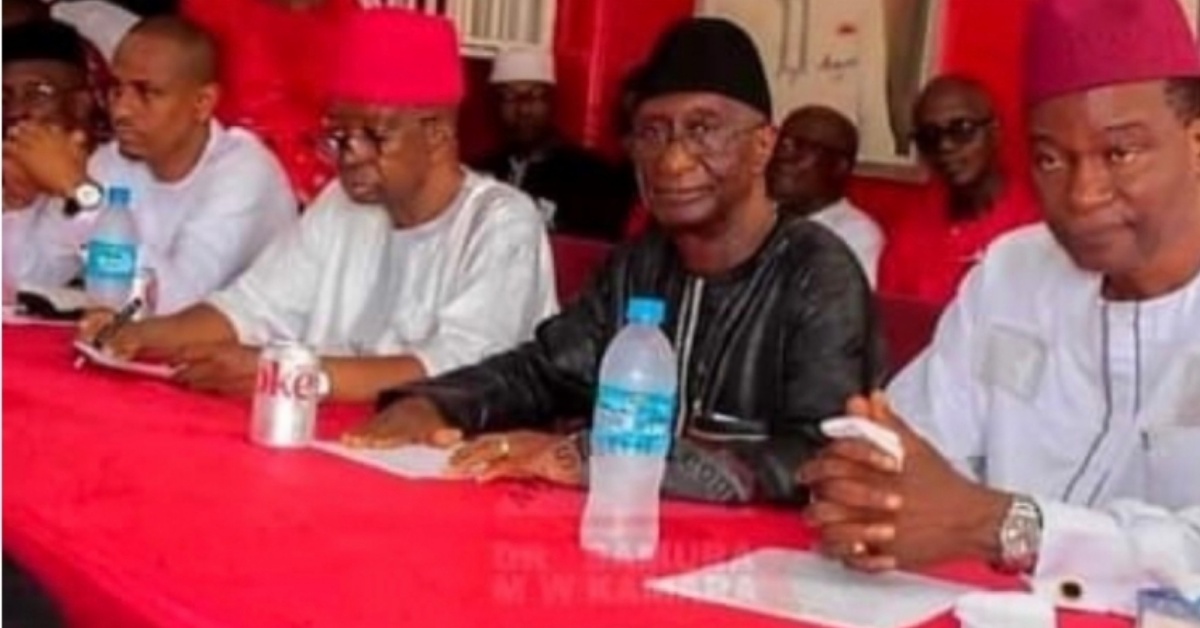When a political party’s candidates for the presidential position perceive that a particular person among them is not electable, they may work behind the scenes to undermine that person if he or she eventually secures the nomi-nation.
This is precisely what happened to Dr. Samura Mathew Wilson Kamara, who won the All People’s Congress (APC) party’s flagbearer position for both the 2018 and 2023 presiden. tial elections in Sierra Leone.
Dr. Samura Kamara’s candidacy was supported by many within the party: including the former party leader and president, Dr. Ernest Bai Koroma, who believed that Dr. Samura was the best option to defeat President Julius Maada Bio. However, not all members of the APC shared this sentiment.
Among the 28 candidates who ran fol the flagbearer position, many felt that Dr. Samura was not the right choice: and some even vowed that he would become president “over their dead bod-ies.” The infighting that followed his nomination created an environment of mistrust and disunity, which ultimately weakened the party’s chances in both elections.
The lack of cohesion withir. the APC became apparent as Presiderit Maada Bio and his Sierra Leone People’s Party
(SLPP) capitalized on these internal di-visions. They managed to exploit the cracks within the APC’s leadership, causing a political catastrophe that has left the party struggling to find its foot-ing. Today, the APC appears disorganized and incapable of mounting a strong opposition, let alone planning and executing a coherent strategy for future elections.
If the APC leadership does not make a concerted effort to find conmon ground and unite the party, the consequences could be dire. Dr. Samura Kamara, who is currently fighting for electoral jus-tice, is frustrated, and the party’s lack of support for him only deepens the di-vide. Without addressing these internal conflicts, the APC will likely face an unpredictable future in the next elections.
The same pattern of undermining and internal sabotage could continue, and any new flagbearer candidate emerging in 2028 might suffer a similar fate.
To move forward, the APC urgently needs to adopt a strategy of reconciliation and healing.
I propose a pre-con-vention meeting that brings together all stakeholders within the party in what could be called a Truth and Reconciliation Assembly. Such an assembly would promote dialogue, reconcili-ation, and forgiveness among party members-both those who have been perpetrators of division and those who have been victims.
A truth and reconciliation convention could help address grievances, restore trust, and pave the way for a unified front. It is essential to recognize that healing is a process that requires open-ness, honesty, and, most importantly, a willingness to confront uncomfortable truths. Without this step, the APC risks remaining stuck in a cycle of internal conflict, unable to provide a credible alternative to the ruling party.
The APC has a rich history and has played a vital role in Sierra Leone’s political landscape. However, if it is to continue to be a force for change, it must first heal from within. The stakes are high, and time is of the essence.
Only through genuine reconciliation can the party hope to regroup, rebuild, and regain the trust of the Sierra Leonean people.












Many who have no credibility or integrity dessiminating dangerous lies on social media will soon disappear. It’s evidently clear that Dr Samura MW Kamara President Elect, was overwhelmingly voted for winning the June 24th, 2023 Multi -Tier Elections by 58.3% setting a new record ever without the need for a run off. Murderer Maada Bio woefully lost the elections no wonder they destroyed all the RRF’S and cannot produce results till this day. What a shameful and disgraceful behaviour! They should hang their heads in shame including those spreading fake and deceitful messages. Soon, we’ll see who’s who!